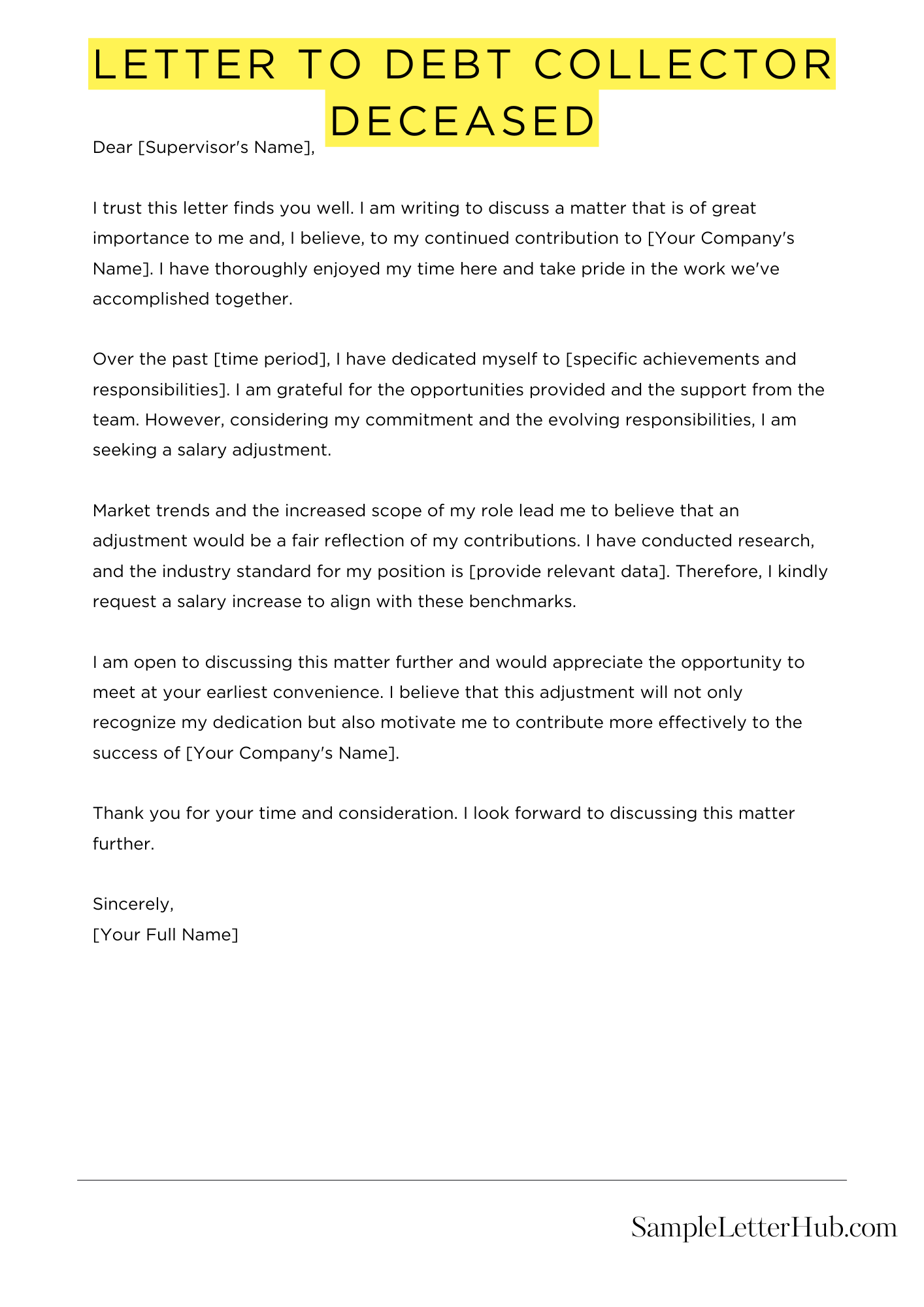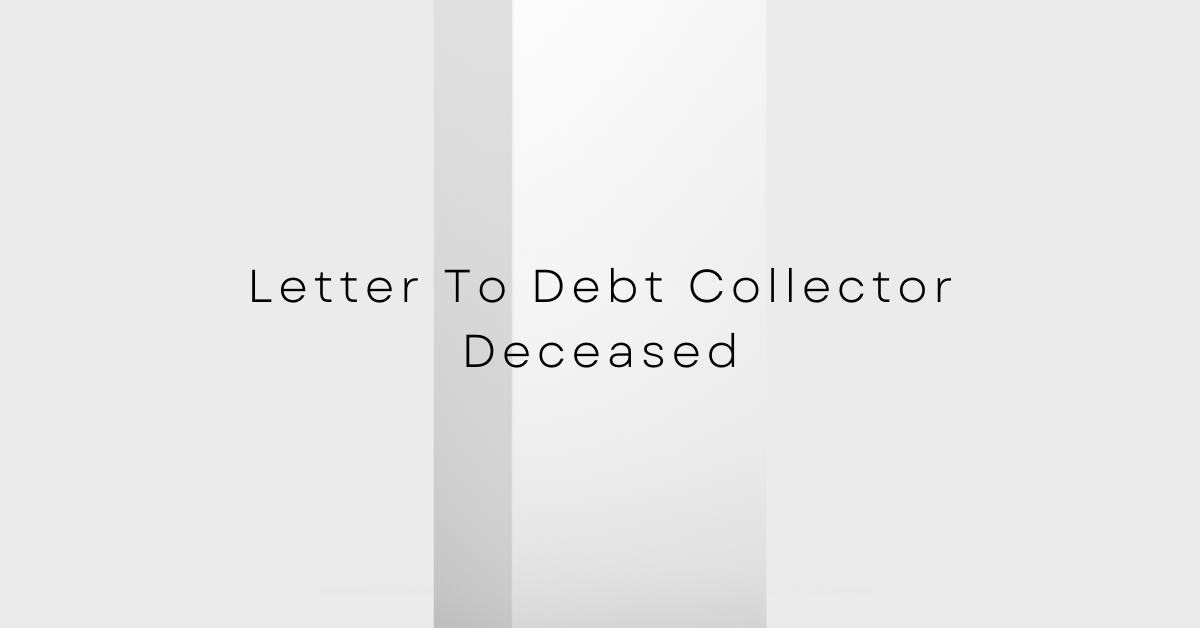Letter To Debt Collector Deceased is a letter written to inform a debt collector that the person they are trying to collect a debt from has passed away. The purpose of this letter is to stop the debt collector from contacting the deceased person’s family or estate.
In this article, we will share templates, examples, and samples of Letter To Debt Collector Deceased. These letters can be used by anyone who needs to write a letter to a debt collector after the death of a loved one.
Letter to Debt Collector Regarding Deceased Individual
Dear [Debt Collector’s Name],
I am writing to inform you that [Deceased Individual’s Name], who was the subject of your recent collection efforts, passed away on [Date of Death].
I understand that [Deceased Individual’s Name] had an outstanding debt with your company. However, as per the law, this debt is now considered discharged due to the individual’s death.
I have enclosed a copy of the death certificate as proof of [Deceased Individual’s Name]’s passing. Please remove any outstanding balances from your records and cease all collection activities.
If you have any questions or require further documentation, please do not hesitate to contact me.
Thank you for your understanding and cooperation in this matter.
Sincerely,
[Your Name]

How to Write a Letter to a Debt Collector About a Deceased Person
1. Gather the Necessary Information
Before you start writing, you need to gather some basic information about the deceased person and the debt. This includes:
* The deceased person’s name and address
* The date of death
* The name and address of the debt collector
* The amount of the debt
2. Write a Formal Letter
Your letter should be formal and respectful. It should be addressed to the debt collector’s customer service department. In the first paragraph, you should introduce yourself and state that you are writing on behalf of the deceased person.
3. Explain the Situation
In the second paragraph, you should explain that the deceased person has passed away and provide the date of death. You should also state that the debt is not valid because the deceased person is no longer alive.
4. Provide Supporting Documentation
If you have any documentation to support your claim, such as a death certificate or a copy of the will, you should include it with your letter. This will help to prove that the deceased person is no longer alive and that the debt is not valid.
5. Request a Response
In the final paragraph, you should request a response from the debt collector. You should ask them to confirm that they have received your letter and that they will take steps to remove the debt from their records.
6. Keep a Copy of Your Letter
It is important to keep a copy of your letter for your records. This will help you to track the progress of your case and to prove that you have taken steps to resolve the issue.
7. Seek Legal Advice
If you are having trouble resolving the issue with the debt collector, you may want to seek legal advice. An attorney can help you to understand your rights and options and can represent you in court if necessary.
FAQs about Letter To Debt Collector Deceased
What should I do if I receive a debt collection letter for a deceased person?
You should contact the debt collector and inform them of the person’s death. You will need to provide a copy of the death certificate.
What information should I include in the letter?
The letter should include the deceased person’s name, date of death, and your relationship to the deceased person. You should also include a copy of the death certificate.
What will happen if I do not respond to the debt collection letter?
If you do not respond to the debt collection letter, the debt collector may continue to attempt to collect the debt from you. They may also report the debt to the credit bureaus, which could damage your credit score.
Can I be held responsible for the deceased person’s debt?
In most cases, you are not responsible for the deceased person’s debt. However, there are some exceptions to this rule. For example, if you were a co-signer on the debt, you may be held responsible for the debt.
What should I do if I am being harassed by a debt collector?
If you are being harassed by a debt collector, you should contact the Consumer Financial Protection Bureau (CFPB). The CFPB can help you stop the harassment and get your money back.

